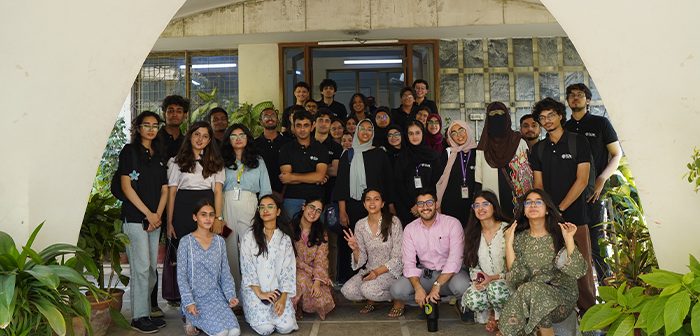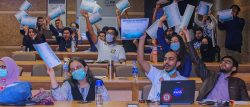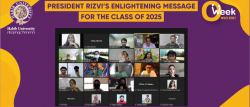Moving Beyond Abstract Collaboration
Too often in Pakistan, conversations about academia–industry collaboration remain abstract. Universities hold panels, publish research, and host debates, but rarely do these translate into structured, intentional experiences that genuinely prepare students for the complexity of professional life. The Career Curation Program (CCP) at Habib University is truly a one of its kind, curated and preparatory program, designed to include industry partners, faculty and students alike. What strikes me is the program’s intentionality: it was not a vehicle for simply providing internships or refining résumés; it was about helping students navigate ambiguity early, understand their capacities, and take ownership of their own trajectory in a world of endless options and limited guidance.
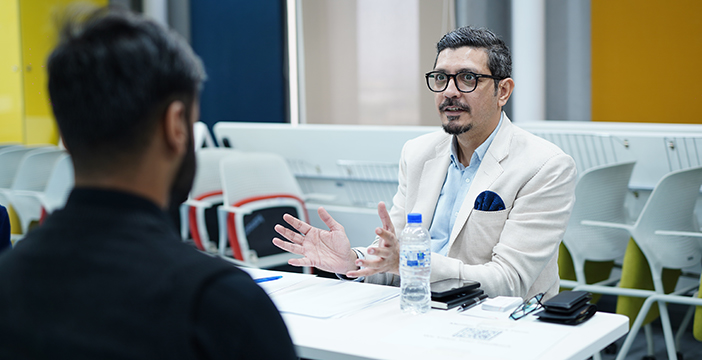
Intentional Design for Real Growth
Upon joining the Office of Career Services, I quickly realized just how integral the Office is. Students came in with questions they struggled to articulate: Am I moving in the right direction? What skills should I start working on proactively? Which experiences will help prepare me to enter the world of work? I realized I had a monumental responsibility to help shape the lives of young people by responding with clarity, intention, and actionable insight. The Career Curation program (CCP) gave me the tools and frameworks to do exactly that; it allowed me to turn uncertainty into reflection, and reflection into deliberate action.
Faculty and Industry: Partners in Purpose
The program does not operate in isolation. Faculty do not just stand by, they invest hours, challenge assumptions, and integrate professional learning with academic reasoning. Industry partners cannot treat students as temporary labor; they must engage thoughtfully, respond to curiosity, and model judgment. My role has been to nurture these relationships, maintain alignment with program goals, and ensure that every interaction carries purpose. In a system where deliberate academia–industry collaboration is rare, sustaining this alignment requires negotiation, patience, and constant attention.
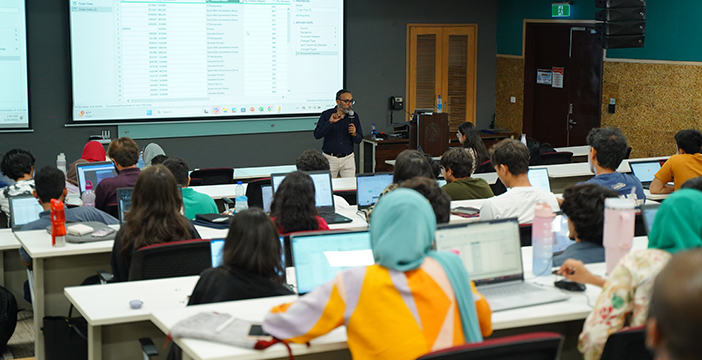
Learning Through Uncertainty
CCP unfolds in phases aligned with students’ growth. Rising sophomores begin with the Summer Career Academy, an immersive three-week experience that introduces them to professional contexts while giving them space to explore. Students confront uncertainty immediately: presenting themselves, asking questions without predefined answers, navigating unfamiliar spaces. Workshops on personal branding, LinkedIn, and emotional intelligence integrate with panel discussions and site visits, not as formalities but as spaces to provoke reflection, experiment, and observe professional behavior in situ. Early exposure allows students to engage curiosity without being overwhelmed; without such structured guidance, exploration easily becomes confusion.
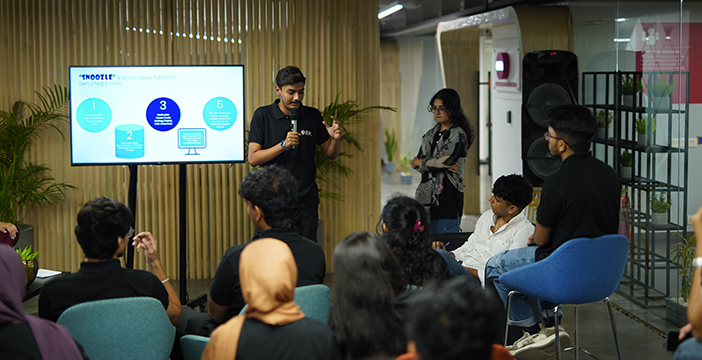
From Exploration to Application
By the third and final year, students move into Summer Experiential Learning Projects. These are not regular internships. Each project comes with a clear problem statement that students tackle using their academic learning and provide concrete solutions.
We designed the sequence intentionally so that students first explore and then apply their learning. This approach gives them space to identify the skills and mindset required, experience workplace dynamics firsthand, and graduate with a more complete understanding of professional life.
Mentorship as Method
What I have loved most about the Career Curation Program is the intentionality with which both faculty and industry engage with students. Faculty dedicate themselves to reviewing projects not as a formality, but as a deliberate act of guidance. They ensure that each assignment aligns with a student’s academic background and learning trajectory, so the work challenges them intellectually rather than simply occupying time. Only once a project meets these criteria do I map students to it, and even after execution, faculty continue to check in, observe progress, and offer guidance. Their sustained involvement transforms projects from isolated tasks into meaningful learning experiences, and for me as a practitioner, witnessing this consistency reaffirms that intentional mentorship is not optional, it is essential for cultivating confidence in students.
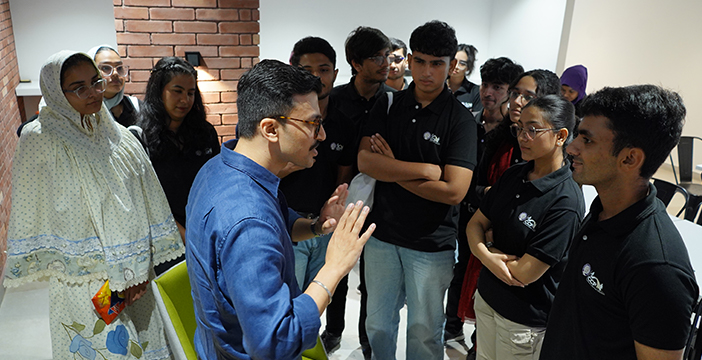
Dialogue, Not Supervision
Industry engagement carries the same intention. One instance I witnessed occurred during the Winter Mentorship phase, which we deliberately designed as a complementary arc to the Career Curation Program. The goal is simple but rare: to place students across the table from decision-makers and let them speak candidly, without panels or speeches. Rarely do students in Pakistan get such an opportunity, but we realized it is crucial for them to share a table with the very leaders who set the direction of their professions. I watched students enter these sessions unsure how to introduce themselves, hesitant about how to sound competent, and gradually find their footing. By the end, the energy in the room completely transforms. I could literally see students and industry leaders laughing together, and becoming so comfortable that time seemed to disappear. At one point, I even had to step in and say, “Please, let’s switch so other students can have their turn.”
For me, these moments are more than heartening, they capture the reasoning behind every design decision in CCP. We structure experiences to give students practice in navigating uncertainty, reflecting deeply, and engaging intentionally, because these are the conditions under which professional judgment and agency develop. Faculty and industry do not merely supervise; they model how thoughtful attention, patience, and reflective dialogue operate in real contexts. This deliberate engagement shows students what professionalism looks like when it is rooted in curiosity, accountability, and sustained reflection rather than transactional tasks.
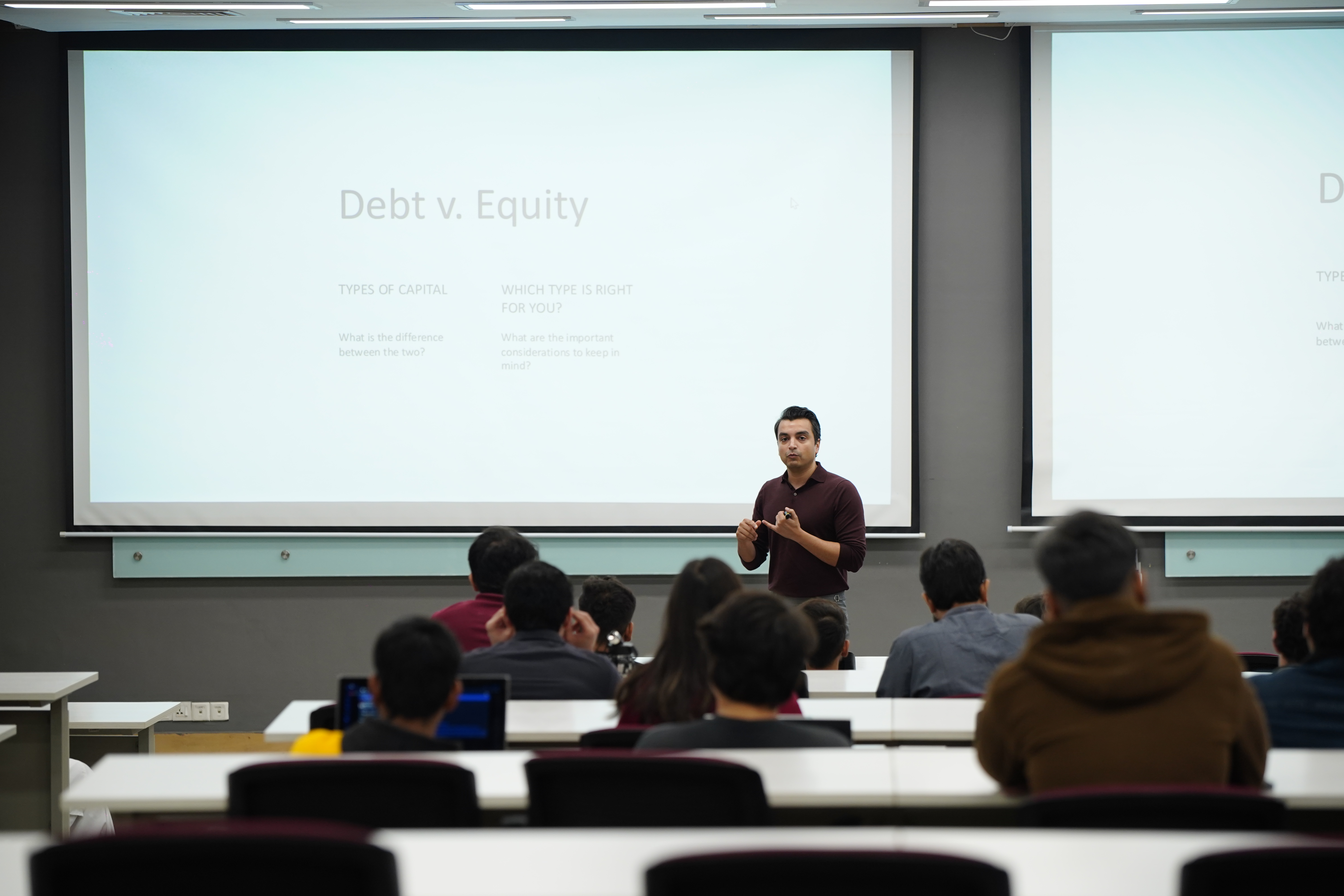
From Anxiety to Agency
The need for a program like CCP in Pakistan feels imperative now. Too often, students approach graduation with only a distant sense of the professional world. Career anxiety creeps in early: the worry of wasted years, the fear of being unprepared. Traditional internships, when available, can be transactional and shallow, more about filling hours than building insight. We set out to replace that anxiety with intention. By engaging students before the panic of senior year, we help them see the long arc of their development and claim agency over it.
Challenges, Refinements, and Evolution
Sustaining such a program is not without its own challenges. In my experience, some of the problems that I faced included: coordinating schedules across departments, securing industry partners who value mentorship over cheap labor, and keeping the momentum of multiple phases simultaneously require constant negotiation. Faculty already carry heavy teaching loads, asking them to review dozens of projects demands time and careful planning. Industry partners sometimes move at a different pace than an academic calendar allows. Yet each obstacle has deepened the program’s design. We have learned to start conversations earlier, to remain flexible when timelines shift, and to keep students’ learning outcomes as the fixed point around which everything else revolves.
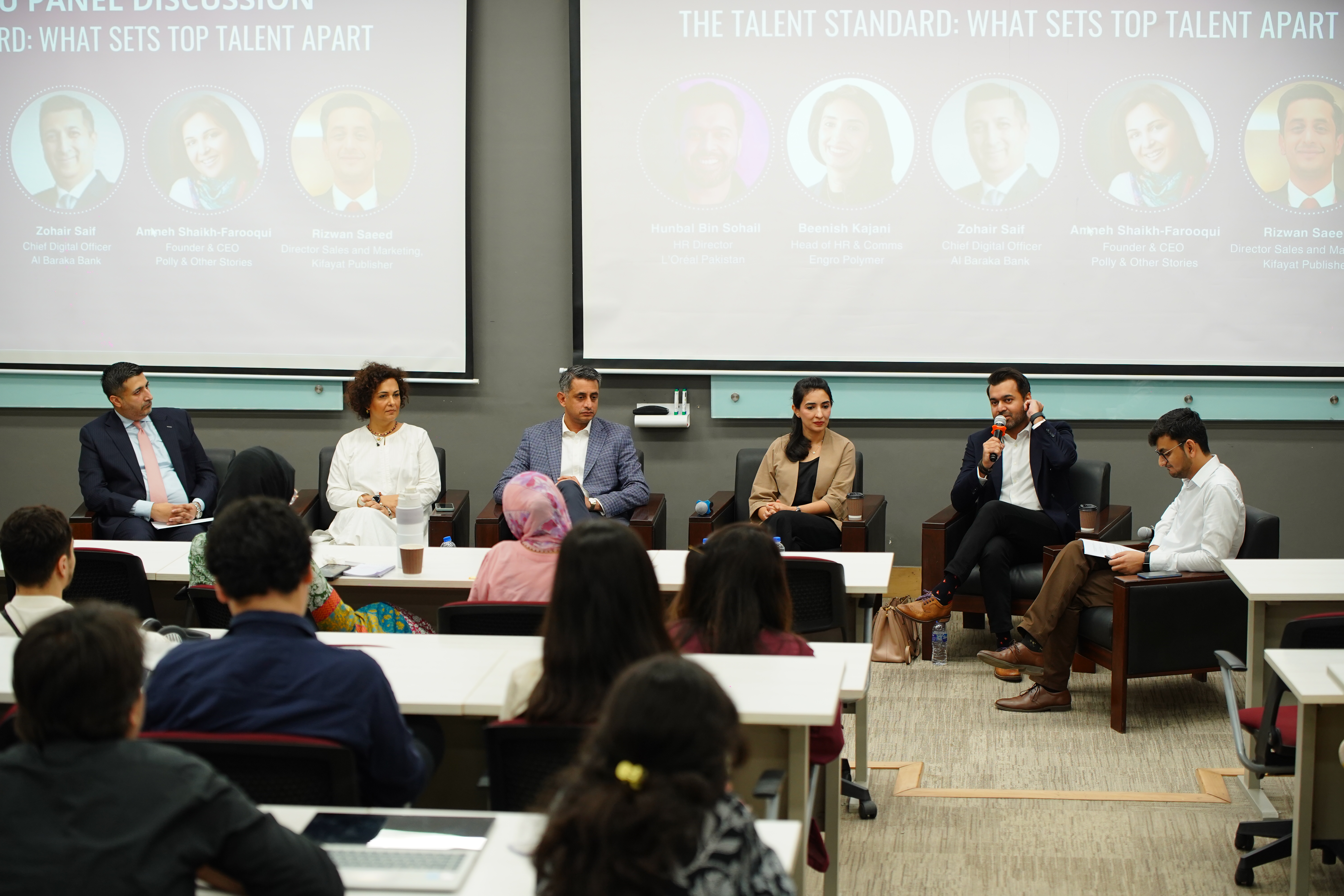
Education as Discovery
What makes CCP distinct from similar efforts at other universities is this integrated design. It is not a one-off career fair or a summer job market. It is a curriculum of experience, threaded through the liberal arts ethos of Habib. The heart of this work, for me, is watching students move from uncertainty to confidence. I have seen sophomores arrive at the Summer Career Academy unsure how to introduce themselves and leave with a vocabulary for their ambitions. I have watched final-year students present their Industry Project findings with the poise of seasoned consultants. Each transformation is quiet but unmistakable.
For me, the north star of this program is the persistent work of giving students a hand to hold when they step into the unknown. The world beyond the campus is unpredictable, industries shift, technologies evolve, climates change, and the very notion of work is being rewritten. Amid all this turbulence, I want students to carry a sense of resilience that doesn’t just help them survive challenges but allows them to see them clearly, understand them, and move through them without losing themselves. Each workshop, each industry visit, each project is not merely a skill-building exercise; it is a small moment in which they confront uncertainty, learn to ask the right questions, and discover that their abilities that can guide them even when answers are not obvious. My aim is to leave them not with a map of predetermined outcomes, but with a toolkit of lessons, and self-belief that ensures even when the ground shifts beneath their feet, they know how to keep walking.
Co-Leading the Career Curation Program has affirmed a truth I hold close: education is not about handing down answers, but about creating the conditions for discovery. Each summer, as students step into their industry projects and return with stories, questions, and a sharpened sense of purpose, I am reminded why we began this work. It is not just to prepare them for a career. It is to help them claim their place in the world, deliberately, thoughtfully, and with hope.
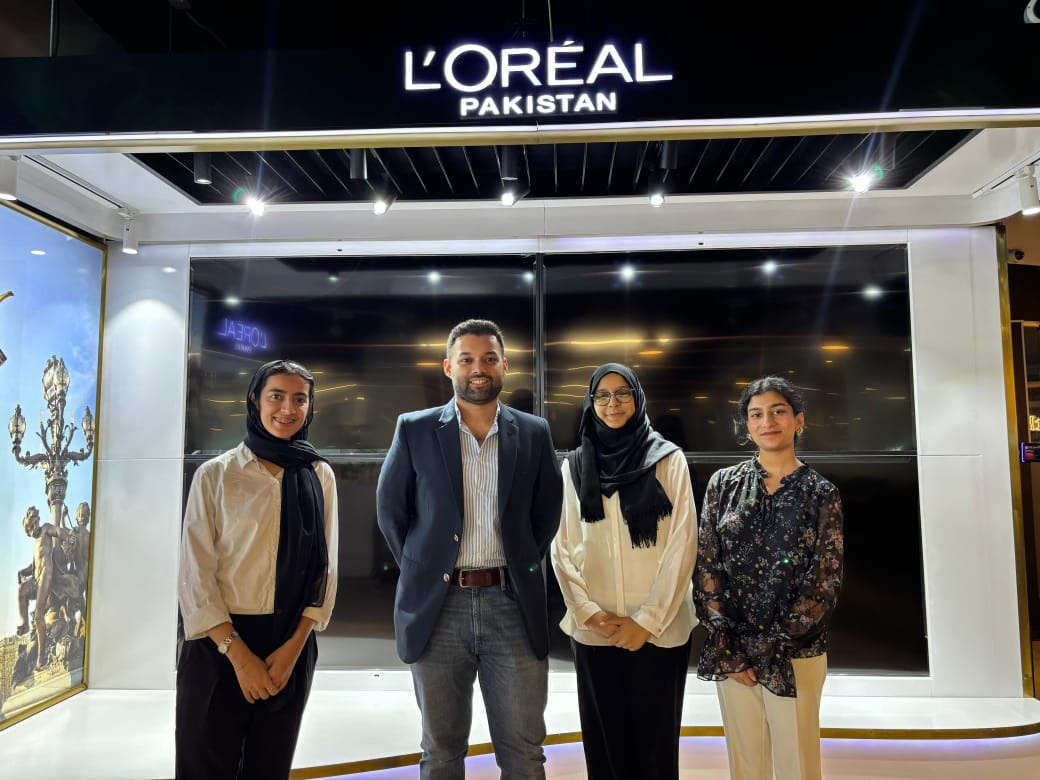
About the Author:
Fariha Fatima is the Deputy Manager, Career Research and Industry Projects in the Office of Career Services, Habib University. She works on initiatives that connect students’ academic learning with professional practice through structured industry collaborations. At the Office of Career Services, she manages the planning and execution of the Summer Experiential Learning Projects and broader industry engagement efforts. Her work focuses on collaborating with faculty and employers to design projects that build students’ competencies, enhance their workplace readiness, and deepen Habib University’s partnerships with industry.
Discover how Habib University is curating futures: one intentional experience at a time.
Explore the Career Curation Program at Habib University.

